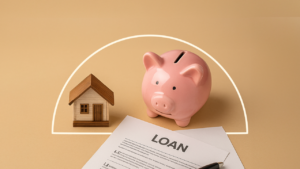Tool 4: Talking to your lender



Key takeaways
- If it’s hard for you to make your debt payments, it could be worth it to speak with your lender about your options.
- You may be able to get a deferment or forbearance on your payments if you call and let your lender know your situation.
- Additionally, you could enter into a payment plan to get you back on track.
- Talking to your lender is just one tool in your debt repayment strategy, and works will with other tools such as budgeting.
If you’re struggling to pay off debt, communicating with your lender is in your best interest. Your lender may offer options like a deferment, forbearance or new payment plan to make it easier to pay off your debt.
A lender will consider the type of loan, your payment history and other factors before granting a modification. While it’s not a guaranteed way to make your debt more manageable, talking to your lender is an important step.
Why should I talk to my lender?
If you’re having trouble making payments or making them on time, it’s best to talk with your lender sooner rather than later. Your lender may help alleviate some of that stress by offering a payment plan or payment amounts that better fit your budget.
You can request a loan deferment or forbearance to pause your payments while you get back on your feet.
Lenders are more likely to respond favorably if you have a good payment history, which is another reason to talk with them early and before you have to miss a payment. Lenders will also be more willing to agree to new loan terms, especially if you can prove financial hardship.
Even if you’ve already missed a payment, it’s still worth talking with your lender about your options.
Asking for deferment
A loan deferment allows you to pause or “defer” payments to your loan temporarily while keeping your accounts current. After the deferment period, your loan will be refinanced to include the deferred payments at the end of the loan.
You will be asked to provide proof of financial hardship when requesting a loan deferment. Your lender will generally require you to send them current bank statements, pay stubs and proof of any additional income. They will also ask for your household expenses, including other debt payments.
You should request a loan deferment before you miss a payment. The lender may report the missed payment which will negatively impact your credit score. Missed payments are added to the end of your loan and unpaid interest could also be added.
You may or may not continue to accrue interest while deferring certain loans, such as student loans.
Asking for forbearance
A forbearance allows you to stop paying your loan for a defined time. You may still accrue interest, but your lender will not report you to credit bureaus or assign late fees once a forbearance agreement has been made.
Unlike a deferment, missed payments during a forbearance become due at the end of the forbearance agreement. Know the difference between the two and understand your financial situation before choosing the one for you.
When asking for a forbearance, be prepared to provide financial documents such as bank statements, pay stubs and proof of additional income. You may also include unemployment checks or medical bills to prove financial hardship.
Forbearance is not available for all types of debt and depends on the lender. For example, it’s more likely that you’ll be able to apply for a forbearance on your student loans or mortgage but not on your auto loan or credit cards.
As with a deferment, you should ask for a forbearance before you miss a payment.
Changing your payment plan
If asking for a deferment or a forbearance seems difficult, consider asking your lender for a payment plan. When you agree to a payment plan, you and your lender decide on a new monthly payment amount for a set time, usually up to 48 months.
Changing your payment plan can lower your payment amount and help you get back on track. Note that a lender may require you to set up automatic payments during a payment plan.
Refinancing or consolidating your debt are other options to get you on a payment plan with lower payments. Taking out another loan to pay off debt or refinancing may require you to pay closing costs and additional fees. Consolidating your debt into one payment can lower your interest rate and monthly payment, but it comes with different terms than a forbearance or deferment.
Be sure to understand the terms and conditions of any payment plan to avoid balloon payments and variable interest rates. You want to secure steady payment amounts each month to achieve your goal of paying down your debt.
Is talking to your lender right for you?
Talking to your lender before you miss a payment is always a good idea. You want to maintain your history of on-time payments so they do not negatively affect your credit score. Plus, you want to show your lender you’re serious about making payments.
Before you call, consider your lender’s policies regarding debt management and payment plans and the type and age of your debt.
While the lender may have certain criteria you need to meet to qualify for a deferment or forbearance, you should know which option is best for you. For example, know if you’ll be able to make the lump sum required payment at the end of the forbearance period or if deferring your payments to the end of the loan is better for your circumstances.
You have to agree to whatever terms your lender offers before a new payment plan can begin. Don’t feel pressured to make quick decisions before you’re ready. Before agreeing to anything, contact your lender to learn about your options.
Other debt paydown tools to consider
Communicating with your lender can work in tandem with other debt paydown tools.
For example, budgeting and debt management are crucial to determining how much you can reasonably afford to pay each month while still meeting your other financial obligations.
During your conversation, you may also want to ask your lender about refinancing or consolidating your debt. Refinancing means taking out another loan with more favorable interest and terms to pay off another loan. Consolidation allows you to combine your debts into one payment, preferably with a lower interest rate and payment amount.
Finally, a strong support system of friends, family and aid from the local community and government can help keep you motivated to stay the course.
Next steps
Talking to your lender about debt payment options doesn’t have to be intimidating. You’ll probably feel relieved to walk away with a plan. If you’re considering a deferment or forbearance, talking to your lender is the first step to accomplishing that goal.
Do more lender-specific research to see what options might be available. And remember to call your lender before you have to miss a payment.
For more information on debt paydown options, including deferment and forbearance, visit our National Debt Relief hub.
Why we ask for feedback Your feedback helps us improve our content and services. It takes less than a minute to complete.
Your responses are anonymous and will only be used for improving our website.
You may also like

The best debt consolidation loans for bad credit in 2025

What is an auto loan hardship program?

How to refinance student loans with bad credit




